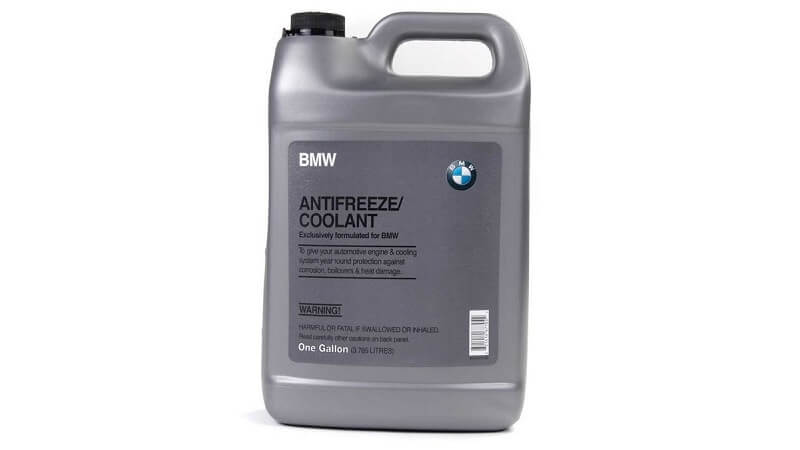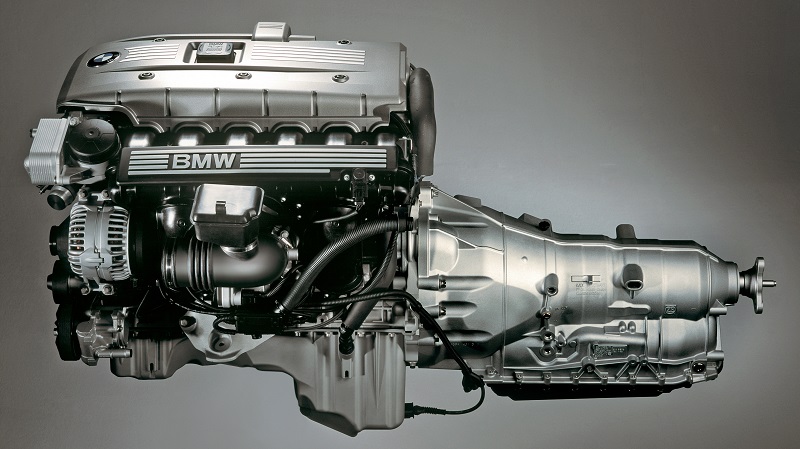In the world of automotive engineering, BMW has long been revered for its pursuit of innovation and performance. As part of their commitment to excellence, BMW utilizes electric water pumps in many of their vehicles. However, like any complex component, these water pumps can occasionally encounter issues. In this short guide, we will explore the reasons behind BMW’s use of electric water pumps, the potential causes of failure, common symptoms of a failing water pump, and the solutions available to address these issues effectively.

Why Does BMW Use an Electric Water Pump?
BMW was one of the first manufacturers to switch completely from belt driven water pumps to fully electric ones. These pumps offer several advantages over traditional belt-driven systems, including greater control over the cooling system, reduced power consumption, and enhanced engine cooling
Efficiency and Control
Electric water pumps offer greater control over the cooling system, allowing for precise regulation of coolant flow based on engine requirements. This enhanced control helps optimize engine performance, fuel efficiency, and overall reliability.
Reduced Power Consumption
Unlike traditional belt-driven water pumps, electric water pumps operate independently, consuming only the necessary power when needed. This results in reduced parasitic loss and increased fuel economy.
Enhanced Engine Cooling
Electric water pumps can circulate coolant even after the engine is turned off, providing additional cooling to critical engine components and minimizing the risk of heat-related damage.
Causes of BMW Electric Water Pump Failure
Despite BMW’s best efforts to design a bulletproof system for coolant circulation, their electric water pumps are known to fail from time to time. In fact, the company issued a recall for certain models due to the potential risk of premature water pump failure. Here is the list of affected models:
2008-2013 BMW 135i
2007-2013 BMW 335i, 335i xDrive, 335is Convertible
2008-2016 BMW 535i, 535i xDrive, 535i Active Hybrid
2012-2017 BMW 640i, 640i xDrive
2010-2015 BMW 740i, 740Li
2012-2015 BMW X1 3.0si
2011-2017 BMW X3 xDrive
2015-2018 BMW X4 xDrive, X4 M40i
2007-2013 BMW X5 xDrive, 3.0si, X5 xDrive30i
2008-2019 BMW X6 sDrive, X6 xDrive
2009-2016 BMW Z4 sDrive
That said, the recall was settled and nowadays most BMW electric water pumps fail due to the usual factors.
Wear and Tear
Over time, the constant operation and exposure to high temperatures can cause the components of an electric water pump to deteriorate. Factors such as mileage, driving conditions, and maintenance practices can contribute to accelerated wear.
Electronic Component Failure
Electric water pumps incorporate various electronic components, such as sensors and motors, which can fail due to manufacturing defects, electrical issues, or prolonged exposure to extreme temperatures.
Coolant Contamination
Poor coolant quality or contamination can lead to corrosion or clogging within the electric water pump, impairing its performance and ultimately causing failure. Make sure to replace your engine coolant at recommended intervals, or sooner.
Symptoms of a Failing BMW Water Pump

Knowing the symptoms of a failing water pump can mean the difference between getting home safely and being stuck somewhere on the side of the road with an overheated engine. One positive thing about BMW using electric water pumps is the presence of various sensors that can indicate an issue before the pump itself fails completely. Here are some of the symptoms you should be looking for.
Check Engine Light
Several DME (Digital Motor Electronics) fault codes can be associated with a failing electric water pump in BMW cars. The specific fault codes can vary depending on the BMW model and the diagnostic equipment used. Here are a few common fault codes that are often related to electric water pump issues:
2E81 – Electric Coolant Pump, Communication Error: This fault code indicates a communication problem between the DME and the electric water pump. It suggests a potential issue with the connection or communication circuit.
2E82 – Electric Coolant Pump, Speed Deviation: This fault code indicates a discrepancy in the expected speed of the electric water pump compared to the actual speed detected. It could signify a malfunctioning pump motor or a problem with the control module.
2E83 – Electric Coolant Pump, Shutdown: This fault code indicates that the DME has detected an unexpected shutdown or failure of the electric water pump. It suggests a potential problem with the pump’s electrical circuit or motor.
2E84 – Electric Coolant Pump, Functionality: This fault code indicates a general malfunction or inadequate functionality of the electric water pump. It could be triggered by issues such as a motor failure, sensor malfunction, or wiring problem.
It is important to note that fault codes alone cannot provide a definitive diagnosis. Professional diagnostic equipment and general knowledge of BMW engines are necessary to accurately diagnose and pinpoint the cause of the electric water pump issue.
Engine Overheating
A failing water pump may result in inadequate coolant circulation, leading to engine overheating. Elevated engine temperature warnings on the dashboard should not be ignored, as they may indicate a water pump problem.
Coolant Leaks
Leaking coolant around the water pump area or beneath the vehicle can be a visible sign of a failing water pump. Puddles of coolant, a sweet smell, or visible coolant stains are indications of a potential issue.
Whining or Grinding Noises
Unusual noises emanating from the engine compartment, such as whining or grinding sounds, may suggest a problem with the water pump’s bearings or impeller.
Fixing a Failed BMW Water Pump
When a BMW electric water pump fails, the only real fix is to replace the entire unit. This is such a critical engine component, which makes any half measured fixes a potential hazard. By replacing the failed water pump with a new one, you are extending the life of your engine and making sure that the risk of overheating is reduced to a minimum.
Get a quality electric water pump for BMW N51/N52 engines! (check fitment for your model)
Get a quality electric water pump for BMW N54 engines! (check fitment for your model)
Get a quality electric water pump for BMW N55 engines! (check fitment for your model)
Get a quality electric water pump for BMW N20 engines! (check fitment for your model)
System Inspection
During water pump replacement, it is advisable to inspect related components such as the thermostat, hoses, and coolant reservoir for any signs of wear or damage. Addressing any potential issues at this stage can help prevent future failures.
Regular Maintenance
Following the manufacturer’s recommended maintenance schedule, including regular coolant flushes and inspections, can help extend the lifespan of the water pump and prevent premature failure.
Find Best Prices on BMW Electric Water Pumps!
BMW’s utilization of electric water pumps in their vehicles showcases their dedication to technological advancements and efficiency. While electric water pump failures are relatively uncommon, they can still occur due to factors such as wear and tear, electronic component failures, or coolant contamination. By staying vigilant and addressing any signs of a failing water pump promptly, BMW owners can maintain their vehicle’s performance and reliability.
Here at Bimmers.com, we offer some of the best prices on genuine BMW, OEM and premium aftermarket electric water pumps. To find a unit that fits your BMW, head over to our shop, select your vehicle and find a water pump that is a guaranteed fit for your bimmer!





